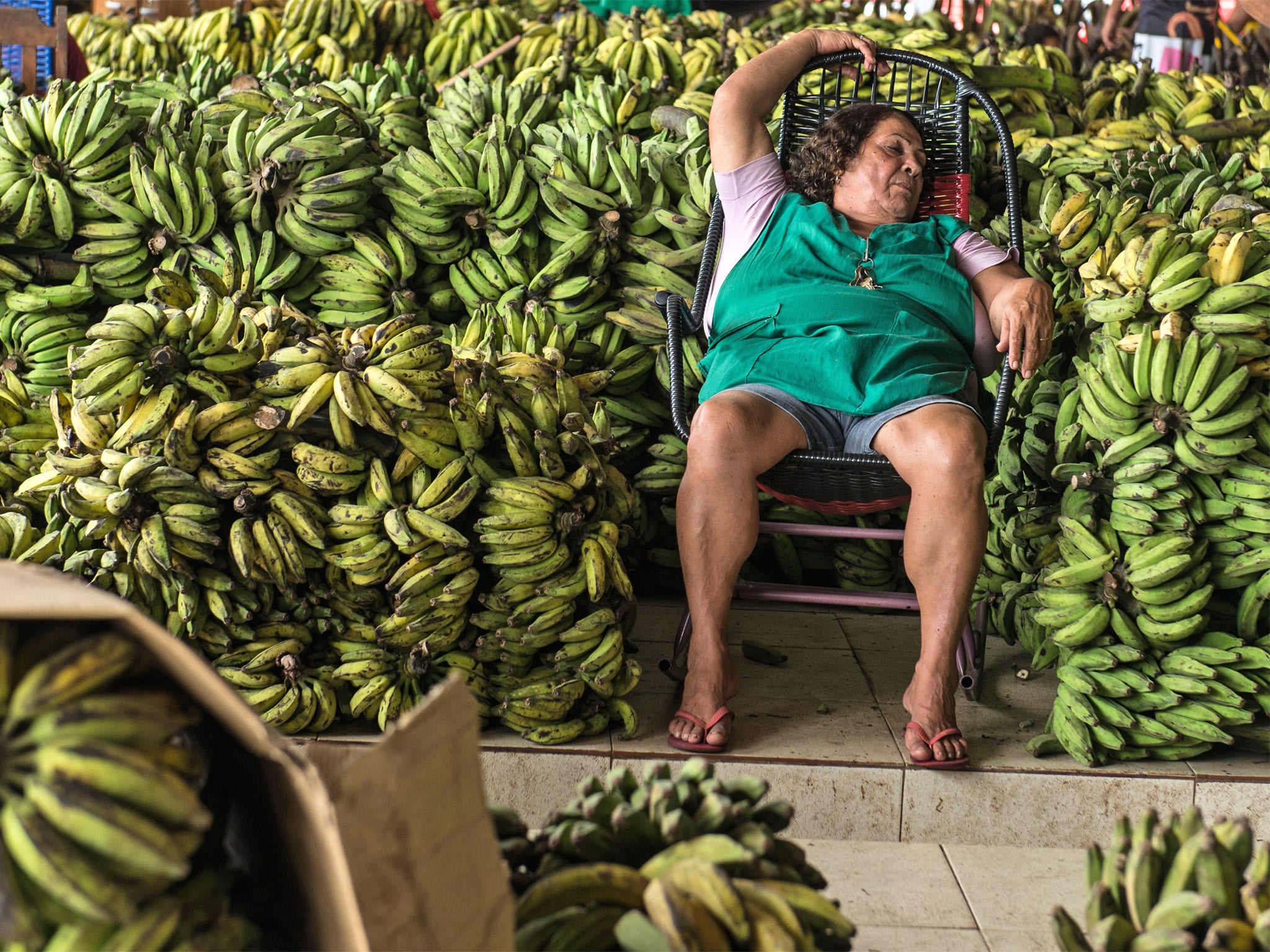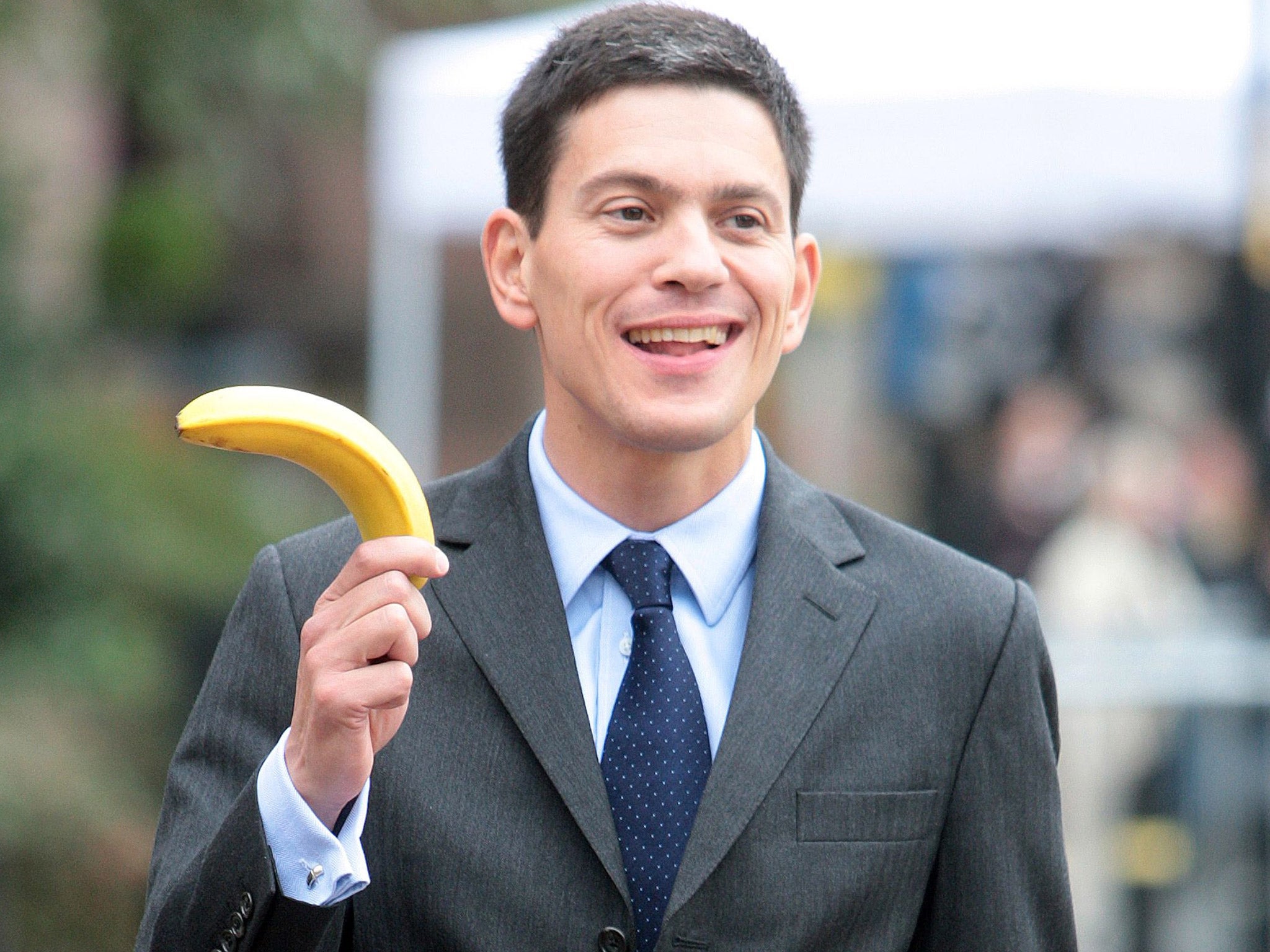Why we must save the banana
The healthy snack is under threat, with insect plagues reducing global supplies. Rosie Millard wonders where we’d be without the lovable fruit and its comic potential

So the silken chrysalis that I found on my banana might be a sign. I unpicked it, to the horror of my children, to find an unremarkable shiny black thing within. I chucked it away and ate the fruit. But apparently the world’s supply of bananas is under threat from plagues of bugs and fungal infections. Up to 20 per cent of the produce of bananas from Costa Rica, one of the world’s key suppliers, has already been written off this year, thanks to plagues of “mealybugs” and the horrendous-sounding “scale” insect. Meanwhile, a banana-eating fungus is bearing down on plantations from Australia to Japan, and is poised to invade South America.
This is all very alarming, not least because the banana is the most lovable and characterful of all fruits. That is, if a fruit can have a character. It’s not just that we share 50 per cent of our genes with them. The banana is crucial at so many of life’s junctures: after marathons; with cross, toothless babies; in the search for luxury on breakfast cereal, we reach for the banana, surely the most brilliantly packaged and user-friendly member of the entire fruit kingdom.
Where would Carmen Miranda be without a bunch of them on her head? Where would the Jungle Book’s King Louis be without that magnificent banana-peeling sequence, which reveals his innate superiority to everyone else in the Disney classic?
From Ian Hislop’s indignation outside court (“if that’s justice, then I’m a banana”), to Groucho Marx’s pratfalls, the banana has been an invaluable asset and, frankly a joy to work with. It does have innate comedy value, as David Miliband found to his cost when he was photographed holding one during the 2008 Labour Party Conference. Now referred to as the “banana incident”, this unwise move probably cost him the leadership.
The banana has been responsible for no less than 10 hit songs, including Spike Jones’s “Yes! We have no Bananas”, and the peerless “Day-O (Banana Boat Song)”, by Harry Belafonte. Oh, and “Banana Republic”, a great Boomtown Rats number.
Actually, the republic of bananas is a very handy cliché. Various declining things in Britain are frequently said to be turning us into one. A Banana Republic, of course, has nothing to do with comedy, the Banana Splits (what a great show) or that upmarket version of Gap, but is a very nasty place to be indeed. The banana crosses the entire domain from good cop to bad, rather like those HSBC ads at Heathrow. Banana Republic = grim. Top Banana = desirable.

Can you see an orange fulfilling the same remit? How many genes do we share with a pear? Who cares? All right, there’s that old apple-a-day thing and now apples are supposed to be the new statins but the role of the forbidden fruit in the Garden of Eden is somewhat disputed (ha!), with some territories replacing it with a pomegranate.
There is pathos about the banana, too. Our family mistily recounts the day my father, now 82, gave his little sister, now 72, his only banana during the Second World War. Which is a whole lot more edifying than the disgraceful action of Evelyn Waugh, who, when given three precious bananas during the same banana-devoid period, peeled them, poured cream over them and ate them – before the horrified faces of his three children. “It would be absurd to say that I never forgave him,” wrote his son, Auberon Waugh, many years later, in his autobiography, “but he was permanently marked down in my estimation from that moment.”
There is no question. Our lovable icon of laughter, energy, generosity and harmless barminess, which can be creamed, baked, grilled, blended, curried or simply scoffed on the go, simply must be saved. A dearth of bananas would be intolerable. Scientists, get to work.
Join our commenting forum
Join thought-provoking conversations, follow other Independent readers and see their replies
Comments
Bookmark popover
Removed from bookmarks